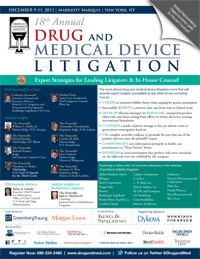Jeffrey B. Shapiro 
Partner at Arnstein & Lehr LLP
Tell us about yourself:
I am from New York City, born and bred, until I relocated to the Sunshine State in 1985. I received a J.D. from St. John’s and, while in the Brooklyn D.A.’s office, went to NYU at night, to obtain my LL.M. in trade regulation
Tell us what a day is like in your field:
For those of who are involved in medical device and pharmaceutical litigation each day is a different challenge, ranging from the review of highly technical materials, to medical literature, to normal “impeachment” documents.
Tell us what you like about working at your company:
An overarching sense of collegiality and teamwork, with colleagues who are ready, willing and able to face the challenge of litigation matters through trial and appeal.
Tell us what you would change in the industry:
Very tough question. First, I will take it what is meant by the “industry” is the medical device/pharmaceutical world. Second, flowing from that assumption, what comes to mind is the need to “encourage” federal and state legislatures to afford the industry greater protection from lawsuits. Perhaps unrealistic in this day and age, but for example Florida’s recent move to adopt the Daubert versus the Frye gives reason to hope that “reform” is not beyond the realm of possibility.
Give us one best practice tip:
I was taught, in what seems like eons ago, “prepare, prepare and then prepare some more”. Within this framework, working with medical device and drug company, lay and expert witnesses, there are a few obvious but always worthwhile remember things to remember:
1. Know more about the witness’s background than your adversary. 2. Know more about your opponent’s themes, witnesses and evidence, than he or she does. 3. School the witness to tell a story, stick to themes, and give him or her a sense of “the personality” and technique of opposing counsel. 4. Advise the witness, lay or expert, that bright people tend to think they are “at fault” if they don’t have an answer to ever y question. That’s a potential mistake for any witness. 5. Tell, them don’t be afraid to push back and bluntly say to opposing counsel, “No, that’s not correct”.